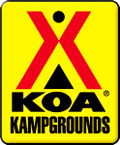Selecting the Best Franchise: Preparations

The last segment covered the basic elements of a business franchise. It dealt with the fundamentals of risks, responsibilities, costs, control issues, and contract obligations. It focused on the many benefits and the inherent pitfalls of franchise ownership. It is time to explore the preparations needed before actually selecting the ideal franchise.

FOLLOW THE INVESTMENT RECIPE
Whether there is one franchise investor or many, each must understand the universal recipe for starting any new business venture. Measure the necessary ingredients of capital, labor, and time. Be realistic about the skills, abilities, and objectives to be applied to the franchise. Determine the total capital to be invested and know precisely how much of this capital each investor is prepared to lose. Compare the advantages of total ownership to spreading the risks between one or more partners. Estimate how much outside financing will be needed and know in advance where and how to obtain it. Know the credit ratings of all the potential principals and be certain their credit histories have been purged of all negative content. Finally, calculate how much money from savings and/or additional income will be needed for living expenses until the franchise shows a profit.

TAKE INVENTORY OF AVAILABLE SKILLS
While computer knowledge, bookkeeping, and some basic technical skills can be applied to almost any business endeavor, most businesses require other abilities that are unique to their own particular niche. Make a detailed list of prior employment experience, include the talents and training acquired, and make note of what essential skills may be lacking such as prior business ownership or management. Be sure to identify franchises that require some technical expertise or rely upon specific education as does automotive repair, home or office decorating, and accounting/tax preparation.

COMPILE GOALS AND OBJECTIVES
What is the new venture supposed to achieve? Is it to earn a living or to supplement existing sources of income? Is it meant to be a new profession or a new hobby? For any new business to have a good chance at success it should certainly establish the levels at which it is starting and what it expects to accomplish. Focus more closely on what can go wrong rather than on what can go right. The things that will go right can only be a help in reaching the ultimate goals. The things that may go wrong could result in disaster.
The list of goals for selecting the best franchise should include specific levels of income or business sectors that include activities that are of particular interest. It may include preferences for retail sales or for performing some service. Other considerations might be the number of hours each week, or the total number of years, that are going to be devoted to the new venture. Is there a need to hire management skills, is one outlet going to be enough, or is there a desire to own a chain of outlets?
Whenever possible, state each goal in a way that defines what is "success" and what is "failure." Make certain that they are realistic and attainable. Target the easiest goals first and allow more time to achieve the more difficult ones. Consider making the most difficult goals wait until they will be easier to accomplish. Include measurable milestones leading up to each goal to be achieved. Make sure that every objective along the way can be measured in some specific way. Vague and uncertain milestones will probably lead to vague and uncertain results.

LET THE SEARCH BEGIN
Having explored the fundamentals of most franchise models and after preparing a thorough analysis of available resources to achieve the required goals, we can now discuss the actual process of finding the franchise that best matches those resources and goals. The next installment will include suggestions for locating the best opportunities available and the techniques to narrow the field down to the investment most likely to succeed.







